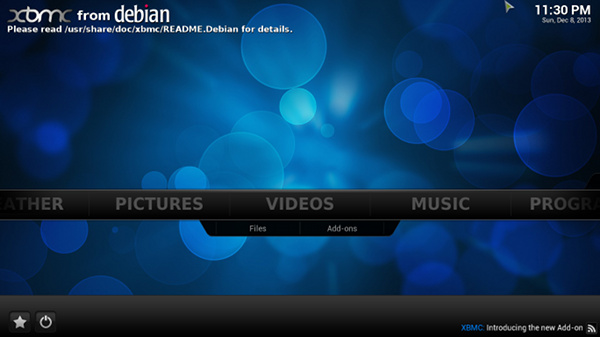
XBMC v13.0 Gotham
Thanks to the great work of the XBMC Team XBMC 13.0 Gotham has been released last Sunday and now “XBMC from Debian” can be downloaded from experimental to Jessie and Sid systems.
It will take some time to enter unstable since it is blocked by the Libav 10 transition, but that will happen, too, eventually.
I have also set up a separate repository at https://people.debian.org/~rbalint/ppa/xbmc-ffmpeg/ based on the Debian packages in main but using XBMC’s internal copy of FFmpeg because I received several request asking for this variant. The packages there can be used on Wheezy (stable), Jessie (testing) and Sid (unstable) but are not part of Debian.
Update 1: For the interested parties the XBMC 13 Libav compatibility patches are available from a git branch in the packaging repository.
Update 2: Gotham and compatible PVR addons have migrated to Jessie (testing) and have also been uploaded to wheezy-backports. This makes Frodo and compatible PVR addons not installable from the usual official Debian repositories but if you would like to still use Frodo you can install it from snapshot.debian.org. Just add the following lines to your sources.list:
deb http://snapshot.debian.org/archive/debian/20140401T173926Z/ wheezy-backports main deb-src http://snapshot.debian.org/archive/debian/20140401T173926Z/ wheezy-backports main
It may be necessary to ignore the Valid-Until header within Release files, in order to prevent apt from disregarding snapshot entries (“Release file expired”). Use aptitude -o Acquire::Check-Valid-Until=false update or apt-get -o Acquire::Check-Valid-Until=false update for this purpose. (from snapshot.debian.org)
Update 3: people.debian.org became available through HTTPS only thus sources.list have to be updated as well. You may need to install apt-transport-https package to access the repositories there.





